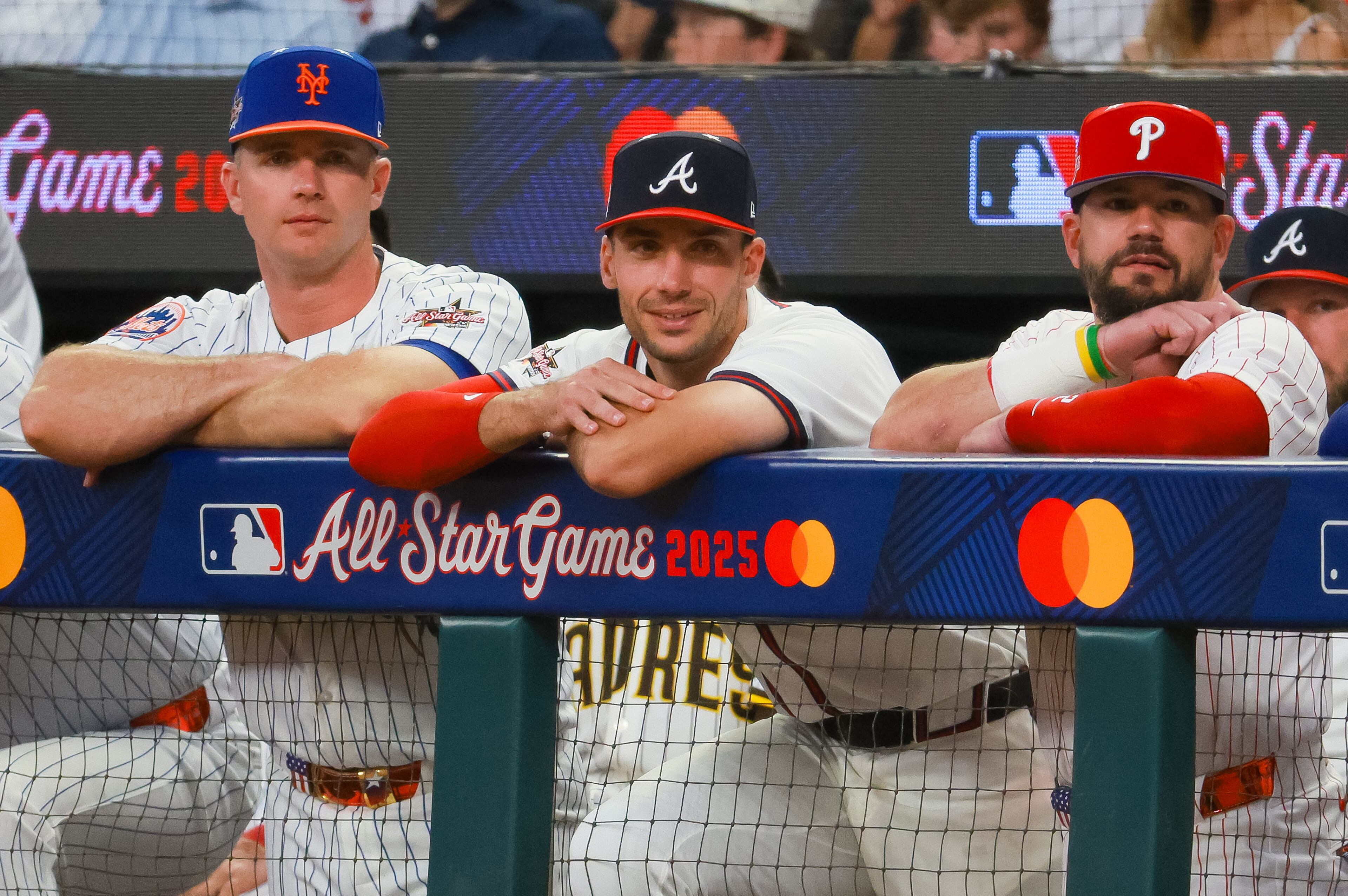There are no quick fixes for Braves, so good thing they don’t need any

There are no quick fixes for the Braves. The offensive issues are a function of the kind of hitters that form the heart of the lineup. The Braves should not mess with that formula just because, against all odds, nearly every one of those batters has scuffled at the same time for weeks.
The Braves might be able to make improvements on the edges of the roster before next month’s trade deadline. They could, say, acquire a short-term outfielder who produces more than Jared Kelenic or Adam Duvall. They could add a veteran pitcher who’s more reliable than the multiple players they’ve tried in the No. 5 starter slot and who would provide insurance for their older arms.
Those kinds of supplemental trades would be more than enough for the Braves. Even with their perplexingly feeble offense, they are better than the lackluster group of teams chasing them in the wild-card standings. The problem is that, if the Braves do decide to be buyers at the trade deadline, they may not find many sellers.
Before Tuesday’s games, there were seven National League teams within four games of the Giants (33-34) for the third wild card. Five teams were similarly placed behind the Twins (35-31) in the American League. Many of those teams are not good. That won’t matter if they are still within striking distance of a wild card when the July 30 trade deadline arrives. The decision-makers for those teams will try to at least give the appearance that they aren’t giving up.
That would leave the Braves vying with lots of other teams to make trades with the few teams that are selling. So far, that list includes the Rockies, Marlins, Athletics, Angels and White Sox (Mets owner Steve Cohen recently told reporters he’s not yet inclined to sell). Maybe three or four other teams will join the list by the time of the trade deadline.
If the Braves are still struggling to score runs a month from now, then they might see if they can pry a decent bat from surrendering teams. A high-contact hitter would be good. Strikeouts aren’t the problem: Only three regulars are striking out at a rate higher than their career norm and two of those players, Marcell Ozuna and Travis d’Arnaud, have been the team’s best hitters. The problem is too many whiffs on pitches in the strike zone and not enough fly balls leaving the park (better luck is the only thing that can help that).
Braves hitters swing and miss on strikes more often than any other MLB team (all stats before Tuesday’s games). They are hitting more fly balls than last season, but far fewer of them are going for home runs: 19.1% in 2023 vs. 10.9% this season. Only the Orioles have produced a higher percentage of hard-hit balls (exit velocity of 95 mph or more). Only the Yankees, Orioles and Dodgers have recorded more “barreled” hits (optimal launch angle with 98 mph exit velocity or better).
Those hard-hit balls haven’t produced good results for the Braves lately. Only two teams, the Reds and White Sox, scored fewer runs in May. The Braves scored only 34 runs over their first eight games of June. But the Braves still rank 12th among MLB teams in runs score. They started the season scoring a bunch of runs, and one good month would get the offense back to where their hitters’ track records say it belongs.
I refuse to believe that’s not going to happen. In fact, the Braves should count on their bats holding up long term more so than their pitching. They already are seeking every chance to give the top four starters extra rest. Another starting option might be on manager Alex Anthopoulos’ trade deadline wish list.
However, the Braves don’t really need that fix or any others.
The fifth rotation spot is for innings eaters, anyway, so might as well get a look at the young pitchers in the pipeline. Anthopoulos paid a hefty price to acquire Kelenic as a project, so might as well let him get lots of at-bats while Ronald Acuña Jr. is on the injured list. Braves batters are hitting balls hard, so might as well wait for more of them to fall for hits or fly over the wall for homers.
It’s not as if the Braves are going to miss the playoffs. The anemic offensive spell likely will prevent the Braves from winning NL East for a seventh consecutive year. The Phillies have been great while surging to a nine-game division lead to begin the week, and they are showing no signs of slowing. But the Braves are going to win one of NL’s three wild cards.
The two major statistical projections forecast the Braves to win about 90 games, with a roughly 90% chance to make the postseason. Once there, the Braves have a shot of advancing with their pitching and (usual) lineup pop. Maybe they can flip the script after winning 101 games in 2022 and 104 games in 2023 only to flop in October both years.
There are no quick fixes for the Braves. There are no major moves to be made for a lineup filled with good hitters on team-friendly contracts. The Braves may not find trade partners for minor moves that could help them.
It’s a good thing, then, that the Braves don’t really need a fix at all.






